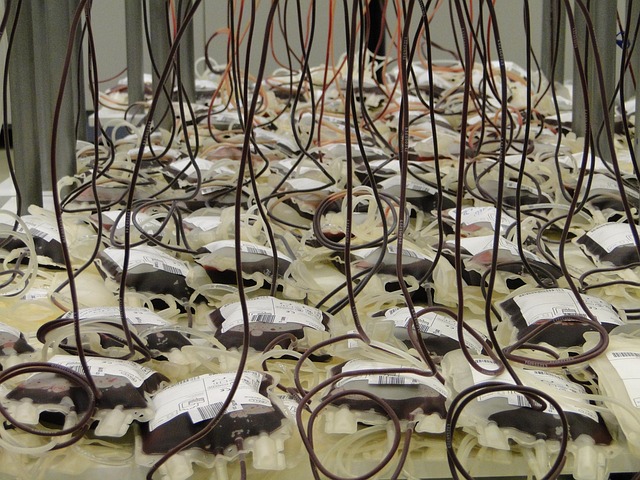Egg donation for fertility treatment raises ethical concerns around consent, autonomy, and donor well-being. Informed consent through education, open dialogue, and clear regulations protects donors while addressing recipient needs. Emotional support is crucial due to the psychological impact on donors and complex emotions for intended parents. Global legal landscapes vary with strict regulations focusing on donor protection, anonymity, health screenings, and regulatory oversight ensuring ethical practices in egg donation for fertility treatment.
Navigating the complex world of egg donation for fertility treatment presents a series of ethical considerations that require careful attention. This article delves into the intricate dilemmas that arise in this unique medical practice, focusing on key aspects such as informed consent, donor rights, psychological impacts, and the critical role of legal frameworks and regulatory bodies. Understanding these elements is essential to ensuring both the well-being of donors and the success of recipients’ journeys.
Understanding Ethical Dilemmas in Egg Donation
Navigating the complex landscape of egg donation for fertility treatment brings a unique set of ethical dilemmas that require careful consideration. At its core, the process raises questions about consent, autonomy, and the potential impact on both donors and recipients. One of the primary concerns is ensuring informed consent from donors, who are making a significant decision regarding their body and reproductive rights. This includes comprehensive understanding of the procedures, risks, and long-term implications, allowing them to choose whether participation aligns with their personal beliefs and values.
Additionally, ethical considerations extend to the emotional well-being of donors, as they may experience a range of feelings, from empowerment to anxiety or even trauma, especially in light of the intimate nature of the donation process. Balancing the needs and desires of prospective parents seeking fertility treatment through egg donation with the rights and comfort of donors is paramount. Responsible practices demand open dialogue, strict regulations, and support systems to address these ethical dilemmas effectively.
Informed Consent and Donor Rights
In the world of egg donation for fertility treatment, ensuring informed consent and protecting donor rights is paramount. Potential donors must be fully apprised of all procedures, risks, and potential outcomes associated with the process before providing their agreement. This includes understanding the extent of their involvement, any medical examinations required, and the possible effects on their physical and mental well-being. Informed consent empowers donors to make voluntary choices while safeguarding their autonomy.
Donor rights encompass a range of protections, from confidentiality to the right to withdraw consent at any time. It’s crucial that donor agencies maintain transparent communication channels and provide clear guidelines for resolving any issues or concerns that may arise. Respecting these rights fosters trust between donors and recipients, ensuring a safe and ethical environment for all parties involved in fertility treatments utilizing egg donation.
Psychological Impact on Donors and Recipients
The psychological impact of egg donation is a multifaceted issue that demands careful consideration. For donors, volunteering their eggs for fertility treatment can be an emotionally charged experience. It involves making a significant personal decision and facing potential physical and emotional side effects, including anxiety, stress, and even guilt. Some donors may also grapple with the uncertainty surrounding the outcome of their donation, especially if they are not involved in the selection process of the recipients.
On the other hand, egg donation can be equally transformative for intended parents who are using this method as part of their fertility journey. The psychological aspect here is centered around hope and anticipation. Recipients often experience a range of emotions, from gratitude to the donor and the medical team to heightened expectations about the future. Balancing these complex feelings while navigating the ethical boundaries of donation can be challenging for both parties, highlighting the importance of comprehensive counseling and support throughout the process.
Legal Frameworks and Regulatory Bodies
The legal frameworks governing egg donation for fertility treatment vary widely across different countries, reflecting diverse cultural and ethical perspectives. In many jurisdictions, strict regulations are in place to protect both donors and recipients, ensuring informed consent, anonymity, and safety. These laws often mandate comprehensive screening of donors to minimize health risks associated with egg donation, including genetic counseling and medical examinations. Regulatory bodies play a crucial role in overseeing these processes, setting standards for donor recruitment, assessment, and compensation, as well as monitoring the overall integrity of egg donation programs.
In some countries, egg donation is strictly regulated by specialized government agencies, while others rely on professional medical associations to establish guidelines and monitor practices. These regulatory bodies ensure that donated eggs are used ethically, promoting transparency and safeguarding the rights of all parties involved. By implementing robust legal frameworks, these entities contribute to fostering a safe and supportive environment for individuals seeking egg donation as a means to achieve fertility treatment.
Navigating ethical considerations in egg donation is crucial for ensuring the well-being of all involved, especially in the context of fertility treatment. By understanding the complex dilemmas, upholding informed consent and donor rights, recognizing psychological impacts, and adhering to robust legal frameworks, we can foster a safe and ethical environment for those seeking egg donation as a means to build their families. These steps are vital for maintaining the integrity of the process while honoring the choices and rights of both donors and recipients.
